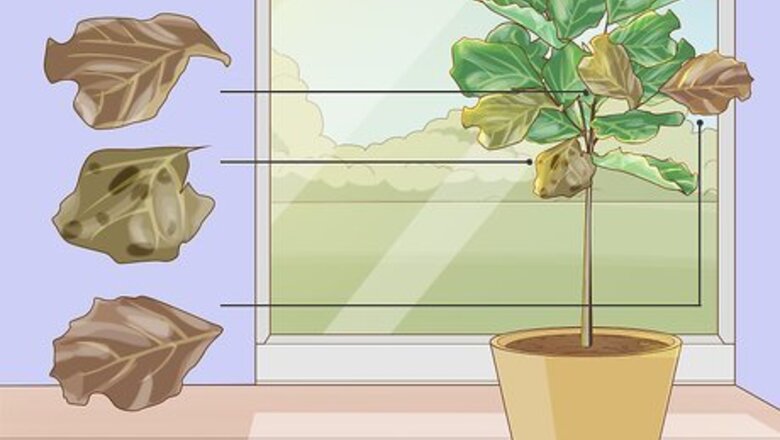
views
Monitoring and Removing the Leaves
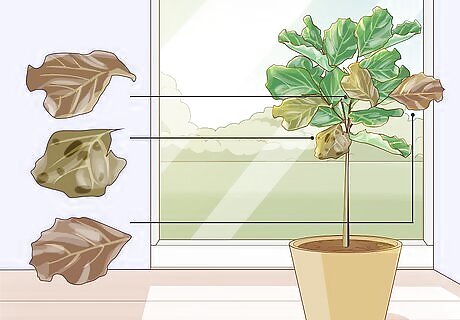
Examine the leaves to determine what the plant needs to grow. Look over the plant to see if you notice any brown, yellow, or red spots on your leaves, as these are all signs that your fiddle leaf fig plant isn’t as healthy as it could be. Try to check on your plant on a regular or weekly basis so you can take action efficiently. Red markings on fiddle leaf fig leaves mean that the plant is drinking up too much water at a fast pace. Thankfully, these marks will slowly fade as the plant continues to grow. If your leaves look yellow, it means that your plant is overwatered. Try cutting on back on the amount of water you give your plant each week and see if you notice a difference. If you see any brown spots, it usually means that your plant is getting too much direct sunlight. Adjust the position of your plant and see if you notice a positive difference!
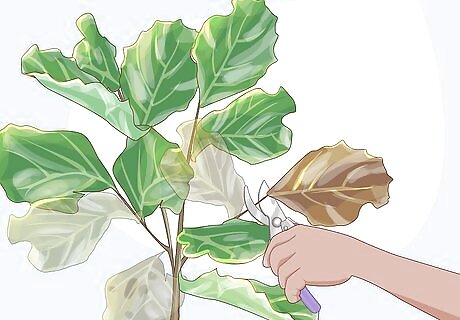
Trim off any damaged leaves with shears. Cut off damaged leaves at the base of the connecting stem. Specifically, focus on any leaves that look brown or black throughout. You can also remove leaves to alter the overall shape of your fig tree. For instance, you could cut off a few leaves at the base of the plant so the foliage resembles a tree.
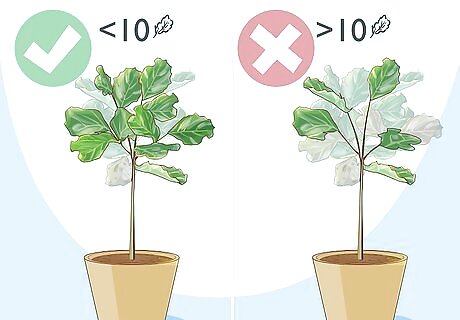
Don’t remove more than 10 leaves from your plant at a time. Limit yourself to trimming a small handful of leaves from your plant. If you remove too many at once, you might shock or potentially damage your fig plant in the long run. Once the plant develops more leafy foliage, you can remove a few more leaves. Wait until the fiddle leaf fig plant sprouts more leaves on top before you prune any more from the base of the plant.
Encouraging the Plant to Branch
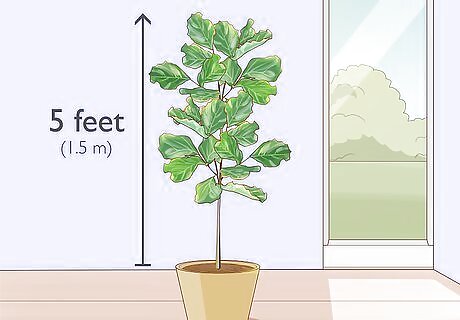
Wait until your fig plant is 5 feet (1.5 m) tall. Starting from the base of the plant, use a measuring tape to check the exact height of your fiddle leaf fern. If your plant is less than 5 feet (1.5 m) tall, wait several weeks or months until the plant has grown more. You don’t want to prune the plant’s branches until the fig tree is well-established.
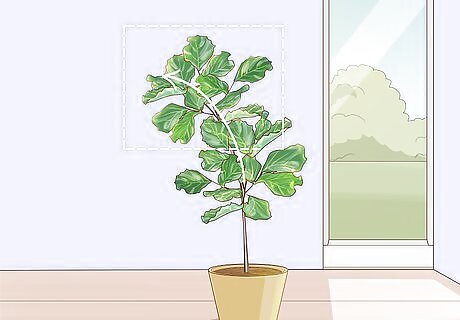
Choose an upper section of the tree to trim. Find a section along the top of your fig plant that’s especially leafy or causing the entire tree to tilt to 1 side. Pick a small or large section, depending on how you want your tree to look in the long run. For instance, if you’re trimming the top of your tree, you could cut 6 in (15 cm) from the top of the tree. You can cut off large branches to use for propagation purposes.
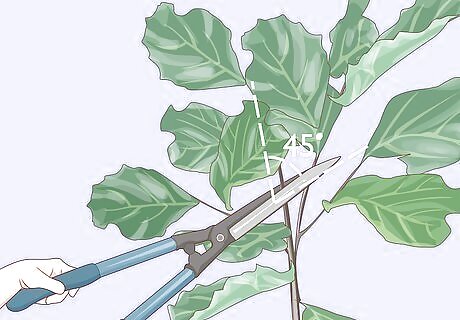
Cut the branch with sharp, sanitized pruning shears. Place your shears on the section of branch that you’d like to cut, then apply a lot of pressure on the handle. Try to remove the branch in 1 go so your tree can look as smooth as possible. Cut the wood at a 45-degree angle if you want to propagate the branch into a new tree. In several weeks, you may notice new shoots beginning to grow from the cut. This will eventually make your tree look fuller.
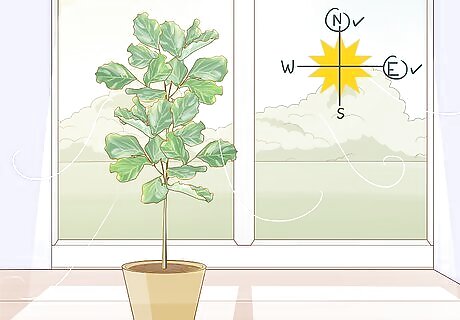
Leave your plant in a place with lots of indirect sunlight. Position your plant by a north- or east-facing window, which will give the fiddle leaf fig a consistent amount of rays with burning or drying it out. If you notice any pale looking leaves or see any brown spots on your plant, then you might need to move your fiddle leaf fig to a new location. South- and west-facing windows will provide your plant with too much direct light.
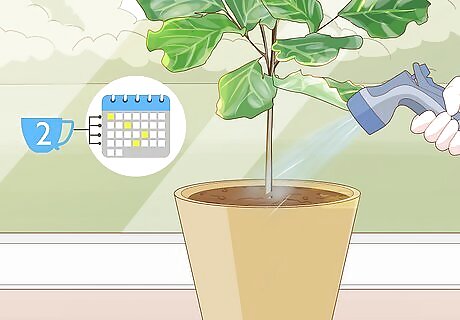
Nourish your fig with about 2 cups (470 mL) of water each week. Check the top layer of soil to make sure that it’s moist. Ideally, make sure that the top 2 inches (5.1 cm) of soil are drenched, which will allow the plant to become strong and healthy. To check the soil, insert your fingers into the plant’s pot to see if any dirt sticks to your skin. If the soil looks dark and tends to stick, you likely don’t need to water your plant. Leave any extra water in the drainage tray for about 15-30 minutes, then blot it away.




















Comments
0 comment